6 start with U start with U
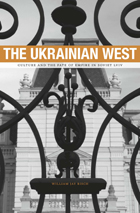
In 1990, months before crowds in Moscow and other major cities dismantled their monuments to Lenin, residents of the western Ukrainian city of Lviv toppled theirs. William Jay Risch argues that Soviet politics of empire inadvertently shaped this anti-Soviet city, and that opposition from the periphery as much as from the imperial center was instrumental in unraveling the Soviet Union.
Lviv’s borderlands identity was defined by complicated relationships with its Polish neighbor, its imperial Soviet occupier, and the real and imagined West. The city’s intellectuals—working through compromise rather than overt opposition—strained the limits of censorship in order to achieve greater public use of Ukrainian language and literary expression, and challenged state-sanctioned histories with their collective memory of the recent past. Lviv’s post–Stalin-generation youth, to which Risch pays particular attention, forged alternative social spaces where their enthusiasm for high culture, politics, soccer, music, and film could be shared.
The Ukrainian West enriches our understanding not only of the Soviet Union’s postwar evolution but also of the role urban spaces, cosmopolitan identities, and border regions play in the development of nations and empires. And it calls into question many of our assumptions about the regional divisions that have characterized politics in Ukraine. Risch shines a bright light on the political, social, and cultural history that turned this once-peripheral city into a Soviet window on the West.
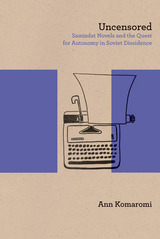
2016 AATSEEL Prize for Best Book in Literary/Cultural Studies
Vasilii Aksenov, Andrei Bitov, and Venedikt Erofeev were among the most acclaimed authors of samizdat, the literature that was self-published in the former Soviet Union in order to evade censorship and prosecution. In Uncensored, Ann Komaromi uses their work to argue for a far more sophisticated understanding of the phenomenon of samizdat, showing how the material circumstances of its creation and dissemination exercised a profound influence on the very idea of dissidence, reconfiguring the relationship between author and reader.
Using archival research to fully illustrate samizdat’s social and historical context, Komaromi arrives at a more nuanced theoretical position that breaks down the opposition between the autonomous work of art and direct political engagement. The similarities between samizdat and digital culture have particular relevance for contemporary discourses of dissident subjectivity.
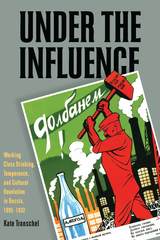
Under the Influence presents the first investigation of the social, cultural, and political factors that affected drinking and temperance among Russian and Soviet industrial workers from 1895 to 1932. Kate Transchel examines the many meanings of working-class drinking and temperance in a variety of settings, from Moscow to remote provinces, and illuminates the cultural conflicts and class dynamics that were deeply rooted in drinking rituals and the failure of attempted reforms by the Tsarist and Soviet authorities.
As the title suggests, workers were often under the influence of alcohol, but they were also under political influences that defined what it meant to be a Soviet worker. Perhaps more importantly, they were under deeper, prerevolutionary cultural influences that continued to shape lower-class identities after 1917. The more the Soviet state tried to control working-class drinking, the more workers resisted. Radical legislation, massive propaganda, and even coercion were not sufficient to motivate workers to abandon traditional forms of fraternization.
Under the Influence highlights working-class culture and underscores the limitations the Bolsheviks faced in attempting to create a cultural revolution to complete their social and political revolution.
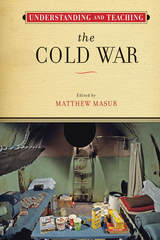
Teaching the Cold War is both necessary and challenging. Understanding and Teaching the Cold War is designed to help collegiate and high school teachers navigate the complexity of the topic, integrate up-to-date research and concepts into their classes, and use strategies and tools that make this important history meaningful to students.
The volume opens with Matthew Masur’s overview of models for approaching the subject, whether in survey courses or seminars. Two prominent historians, Carole Fink and Warren Cohen, offer accounts of their experience as longtime scholars and teachers of the Cold War from European and Asian perspectives. Sixteen essays dig into themes including the origins and end of the conflict, nuclear weapons, diplomacy, propaganda, fear, popular culture, and civil rights, as well as the Cold War in Eastern Europe, Western Europe, East Asia, Africa, Latin America, and the nonaligned nations. A final section provides practical advice for using relevant, accessible primary sources to implement the teaching ideas suggested in this book.
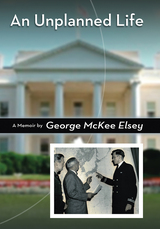
Elsey’s duties continued with Harry Truman’s succession to the presidency. He decoded the famous message from Secretary of War Henry Stimson reporting the dropping of the atomic bomb on Hiroshima and carried it to President Truman. In 1947, he shed his Naval Reserve uniform and joined the White House’s civilian staff as assistant to the special counsel to the president. In 1949, he became administrative assistant to the president, and, in 1952, he became a member of the Mutual Security Agency staff. During those years, he grew very close to Harry Truman, and thus, a major portion of An Unplanned Life relates to his experiences then.
In the first postwar winter, Elsey was frequently the only staff member who accompanied President Truman on the USS Williamsburg. In September 1946, Elsey submitted a report to Truman on U.S.-Soviet relations, which came to be well known as the “Clifford-Elsey Report.” Providing Truman with notes for some two hundred of his “back-of-the-train” informal talks, Elsey played a part in the best remembered feature of the “Whistle-Stop Campaign” that resulted in “the political upset of the century.” In addition to his years at the White House, Elsey also touches on his post–White House years—his time in private industry, his months with Clark Clifford when Clifford was trying unsuccessfully to extricate America from Vietnam, and his long association with the American Red Cross.
An Unplanned Life is a fascinating look at the life of an extraordinary individual who played an important and unprecedented part in two different presidents’ decisions and affected the course of our nation. Anyone with an interest in history will find this memoir fascinating and invaluable.
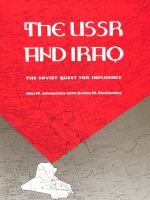
Drawing on ten years of research in Western, Arab, and Soviet sources, Smolansky analyzes the complex issues at the center of Soviet-Iraqi relations from 1968 through 1988, including the nationalization of the oil industry, the Kurdish question, the Iraqi Communist Party, the affairs of the Persian/Arabian Gulf, and, ultimately, the war between Iraq and Iran.
Smolansky concludes that Iraq has never been under the dominant influence of Moscow, nor has it even been a loyal Soviet ally. In fact, Iraq has managed to reap major benefits from the relationship without losing its autonomy or sacrificing its major interests. The author discusses the Soviet Union and Iraq within the larger framework of the nature of influence relationships between great and small powers.
READERS
Browse our collection.
PUBLISHERS
See BiblioVault's publisher services.
STUDENT SERVICES
Files for college accessibility offices.
UChicago Accessibility Resources
home | accessibility | search | about | contact us
BiblioVault ® 2001 - 2024
The University of Chicago Press









